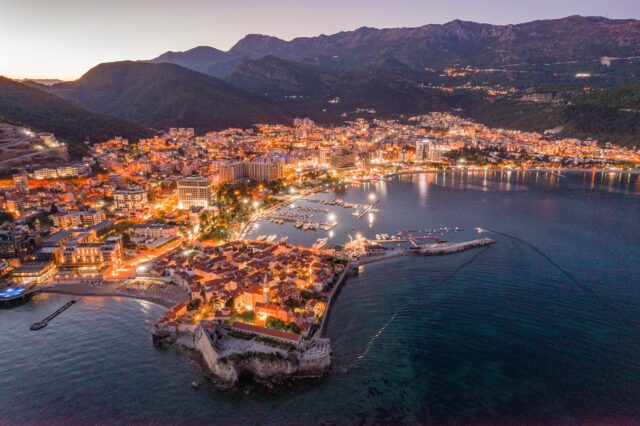The Mediterranean region is known for its night life activities especially during summer seasons and Montenegro is not immune to this. The night life of Montenegro is entirely focused on coastal towns which serves as a tourist attraction site. In summer seasons, Budva which is considered the capital city for night life in Montenegro welcomes a substantial number of tourists from in and outside the Mediterranean region. Budva is also known as Montenegro’s party capital as party never ends in the city. Budva has several night entertainment facilities that comes in the form of bars and pubs, open-air pubs, beach and night clubs. These facilities have been decorated with lightening effects and real interior to attract people. The facilities host some of the famous DJs in the world with music performances by these DJs. Though there is a curfew against playing music after 1:00am, this is not always the case.
Challenges
In as much as night economy comes with several opportunities especially for economic growth, it is not without challenges. Challenges such as noise pollution, safety and security, sleeplessness are just a few examples that can be talked about. Organizing the night economy in a way that can manage these challenges will go a long way to contribute to development. Noise pollution at night clubs for instance, is gradually becoming a peculiar environmental issue as it disturbs the sleep of people at night and even during the day. It makes it difficult for students to study in schools and can also trigger anger and exacerbate health conditions. Noise pollution at night is mainly caused by loud music play, vehicle movement and horning, screaming at night parties, alcoholism resulting in noise making behaviors among others. Transportation is also another challenge when it comes to night economy. With Budva being an old town, there are no trains to facilitate transport especially at night. The available means of transportation is buses with bus stations wide apart from each other. Most tourist in Budva do a lot of walking due to the limited means of transportation. This however threatens the security and safety of people especially at night.

Why have an organized night economy
To have an organized night economy is critical for economic, social and cultural development. In Europe some countries have appointed “night mayors” and in some cases created departments responsible for managing the city’s night-time ecosystem and offering innovative solutions to improve the night life safety and security as well as control the negative impacts. Establishing such portfolios and departments is important for addressing the challenges faced with the night economy. Challenges such as the deprivation of mobility opportunities for night workers, limited safe and inclusive public spaces, gap between those who want to party and those who want to sleep can be addressed through this means. It is necessary for Budva to have an organized night economy for the following reasons.

To promote tourism: Budva is one of the best cities in Montenegro for tourist attraction. However, with the challenges that comes along with an unorganized night economy as described above, most tourists may lose interests in visiting the beautiful sites. An organized night economy will therefore create an enabling environment for both locals and visitors to enjoy their stay in Budva hence promoting tourism in the region.
To boost economic growth: A well organized night economy can contribute to economic growth. As more tourists and locals spend time in the city, the more economic activities are boosted especially in the local area. The impact on accommodation, transportation, health and even food are all ways of contributing to economic development.
To control noise pollution: Noise pollution as have been mentioned is one of the major challenges of night economy. An organized economy can put in place structured strategies to reduce noise pollution through the implementation and enforcement of noise pollution laws. Though curfews have been placed against music played after 1:00am in Budva, law enforcement bodies need to be strengthened to properly enforce these laws.
To create more local jobs: Organizing the night economy in Budva will create more employment opportunities as it will be an avenue for extended operating hours making it possible for local people to engage in a lot of economic activities.
To promote cultural exchange: an organized night economy in Budva will enhance cultural activities and exchange. An enabling environment for the night economy will attract people from multicultural environment to showcase their culture while entertaining themselves.
To ensure safety and security: Regulating public spaces, public transportation, and commercial activities ensures safe and secured accessibility of cities for night shift workers, including emergency services, hospitality, retail, food services, and workers in factories, warehouses and production facilities.
To control alcoholism and drug use: Setting out regulations and alcohol control mechanism is part of organizing the night economy. In Budva, a proper management of night economy can indirectly reduce noise pollution, crime and other illicit activities caused by alcoholism.
Author:
Jane Osei, PhD candidate
Edith Cowan University, AU
Research/Analyst intern
Mentor:
Marija Lazarević, MSc, CEO
MariXperience Ltd.

